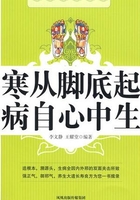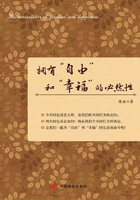In this last class, however, proletarians were distinguished from capite censi.The former, not quite reduced to nothing, at least gave the State citizens, and sometimes, when the need was pressing, even soldiers.Those who had nothing at all, and could be numbered only by counting heads, were regarded as of absolutely no account, and Marius was the first who stooped to enrol them.
Without deciding now whether this third arrangement was good or bad in itself, I think I may assert that it could have been made practicable only by the simple morals, the disinterestedness, the liking for agriculture and the scorn for commerce and for love of gain which characterised the early Romans.Where is the modern people among whom consuming greed, unrest, intrigue, continual removals, and perpetual changes of fortune, could let such a system last for twenty years without turning the State upside down?
We must indeed observe that morality and the censorship, being stronger than this institution, corrected its defects at Rome, and that the rich man found himself degraded to the class of the poor for making too much display of his riches.
From all this it is easy to understand why only five classes are almost always mentioned, though there were really six.The sixth, as it furnished neither soldiers to the army nor votes in the Campus Martius, 36 and was almost without function in the State, was seldom regarded as of any account.
These were the various ways in which the Roman people was divided.Let us now see the effect on the assemblies.When lawfully summoned, these were called comitia: they were usually held in the public square at Rome or in the Campus Martius, and were distinguished as comitia curiata, comitia centuriata , and comitia tributa , according to the form under which they were convoked.The comitia curiata were founded by Romulus; the centuriata by Servius; and the tributa by the tribunes of the people.No law received its sanction and no magistrate was elected, save in the comitia; and as every citizen was enrolled in a curia , a century, or a tribe, it follows that no citizen was excluded from the right of voting, and that the Roman people was truly sovereign both de jure and de facto.
For the comitia to be lawfully assembled, and for their acts to have the force of law, three conditions were necessary.First, the body or magistrate convoking them had to possess the necessary authority; secondly, the assembly had to be held on a day allowed by law; and thirdly, the auguries had to be favourable.
The reason for the first regulation needs no explanation; the second is a matter of policy.Thus, the comitia might not be held on festivals or market-days, when the country-folk, coming to Rome on business, had not time to spend the day in the public square.By means of the third, the senate held in check the proud and restive people, and meetly restrained the ardour of seditious tribunes, who, however, found more than one way of escaping this hindrance.
Laws and the election of rulers were not the only questions submitted to the judgment of the comitia: as the Roman people had taken on itself the most important functions of government, it may be said that the lot of Europe was regulated in its assemblies.The variety of their objects gave rise to the various forms these took, according to the matters on which they had to pronounce.
In order to judge of these various forms, it is enough to compare them.
Romulus, when he set up curia , had in view the checking of the senate by the people, and of the people by the senate, while maintaining his ascendancy over both alike.He therefore gave the people, by means of this assembly, all the authority of numbers to balance that of power and riches, which he left to the patricians.But, after the spirit of monarchy, he left all the same a greater advantage to the patricians in the influence of their clients on the majority of votes.This excellent institution of patron and client was a masterpiece of statesmanship and humanity without which the patriciate, being flagrantly in contradiction to the republican spirit, could not have survived.Rome alone has the honour of having given to the world this great example, which never led to any abuse, and yet has never been followed.
As the assemblies by curiæ persisted under the kings till the time of Servius, and the reign of the later Tarquin was not regarded as legitimate, royal laws were called generally leges curiatæ.
Under the Republic, the curiæ , still confined to the four urban tribes, and including only the populace of Rome, suited neither the senate, which led the patricians, nor the tribunes, who, though plebeians, were at the head of the well-to-do citizens.They therefore fell into disrepute, and their degradation was such, that thirty lictors used to assemble and do what the comitia curiata should have done.
The division by centuries was so favourable to the aristocracy that it is hard to see at first how the senate ever failed to carry the day in the comitia bearing their name, by which the consuls, the censors and the other curule magistrates were elected.Indeed, of the hundred and ninety-three centuries into which the six classes of the whole Roman people were divided, the first class contained ninety-eight; and, as voting went solely by centuries, this class alone had a majority over all the rest.When all these centuries were in agreement, the rest of the votes were not even taken; the decision of the smallest number passed for that of the multitude, and it may be said that, in the comitia centuriata , decisions were regulated far more by depth of purses than by the number of votes.
But this extreme authority was modified in two ways.First, the tribunes as a rule, and always a great number of plebeians, belonged to the class of the rich, and so counterbalanced the influence of the patricians in the first class.















